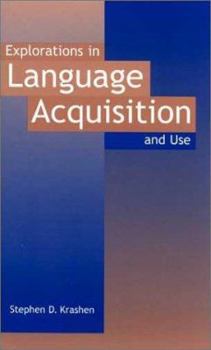Explorations in Language Acquisition and Use
Select Format
Select Condition 
Book Overview
To those familiar with the field of linguistics and second-language acquisition, Stephen Krashen needs no introduction. He has published well over 300 books and articles and has been invited to deliver more than 300 lectures at universities throughout the United States and abroad. His widely known theory of second-language acquisition has had a huge impact on all areas of second-language research and teaching since the 1970s. This book amounts to a summary and assessment by Krashen of much of his work thus far, as well as a compilation of his thoughts about the future.
Here, readers can follow Krashen as he reviews the fundamentals of second-language acquisition theory presents some of the original research supporting the theory and more recent studies offers counterarguments to criticisms explores new areas that have promise for progress in both theory and application. An invaluable resource on the results of Krashen's many years of research and application, this book covers a wide range of topics: from the role of the input/comprehension hypothesis (and its current rival-the comprehensible output hypothesis), the still-very-good idea of free voluntary reading, and current issues and controversies about teaching grammar, to considerations of how it is we grow intellectually, or how we "get smart."





